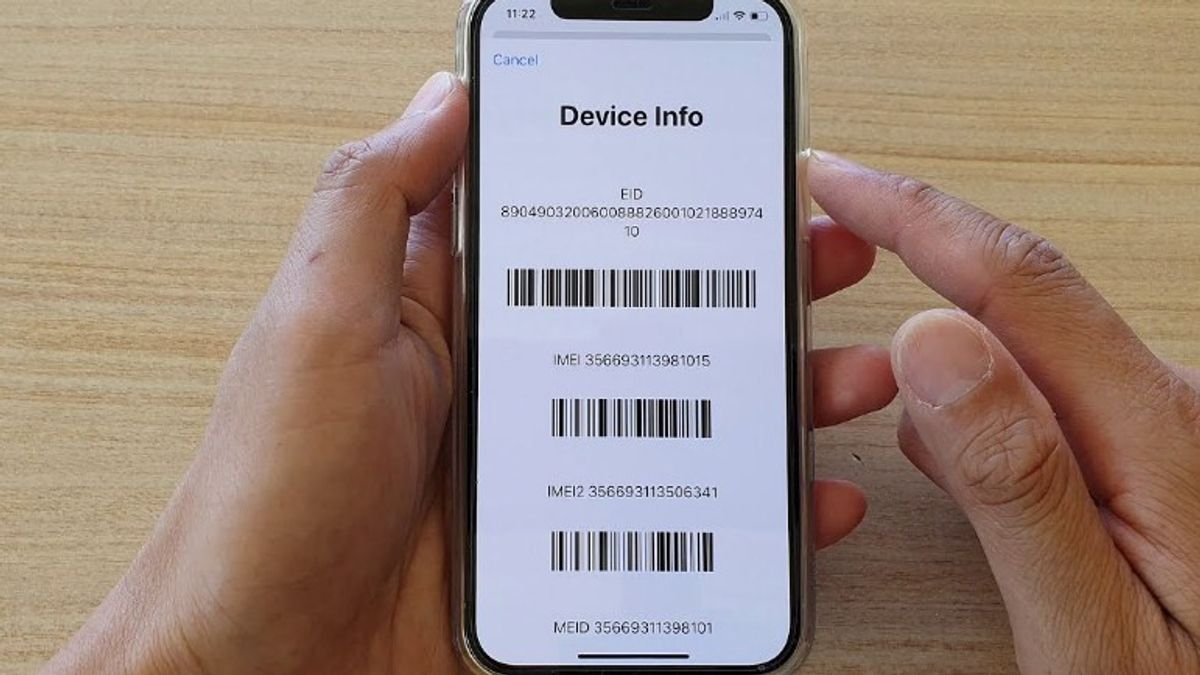A WiFi Signal jammer is a device used to block communications in the frequency band in which WiFi connectivity works. On the internet you can find numerous models for sale, or tutorials on how to make a homemade frequency jammer. But what does the law say about it? Is it legal to use this type of device?
What is a WiFi Signal Jammer?
WiFi jammers are tools whose function is to block WiFi signals in a certain radius of action.
Instead of blocking one or more electronic devices to prevent them from communicating with each other, what a jammer does is create interference, that is, cause noise and useless information so that the true communication between devices is overshadowed by useless information.
Signal jammers began to be used for the interception and jamming of communications in the 2nd World War, and their use has continued to this day.
However, on many occasions some of its most recent uses have been aimed at illicit activities. For example, it is common to use them to block alarms in attempted robberies.
In other cases they have been used to prevent illegal activities, but the results have not been as expected. For example, some universities used them to prevent students from cheating on exams using earpieces that allowed them to receive information from abroad. The problem is that, sometimes, these jammers had a radius of action that was too large and interfered with other communications.
In short, a WiFi jammer has the ability to block communications between devices that use this type of connectivity, and can even function as a Bluetooth jammer . But how do they work? And most importantly: are they legal ?
How do jammers work?
WiFi signals are assigned to the 2.4 GHz band , with a width of 100 MHz, that is, they reach up to 2.5 GHz. However, not all of this spectrum can be used for WiFi, since the use of the last band, number 14, is prohibited throughout The United States. Therefore, the real spectrum would go from 2.412 GHz to 2.472 GHz.
What a WiFi signal jammer does is precisely interfere with communications between these frequency bands. To do this, they create what is called white noise , which consists of saturating the frequency with invalid information (noise) to prevent the real information from reaching its destination.
Imagine a conversation between two people in which a third is dedicated to shouting at a high volume to prevent the two interlocutors from being able to communicate with each other. Well, this would be a simile of how a WiFi inhibitor works .
Its design is quite simple, and even almost anyone with minimal notions could make a homemade WiFi jammer . They have an oscillator that is responsible for generating the signal, a noise generator to create interference, an amplifier to boost the signal, and an antenna (or several) for the transmission of said signal.
Types of jamming or interference attacks
There are WiFi signal jammers with different sizes, with the ability to scan different numbers of frequencies or with variable range.
But, in general, these jammers are usually classified according to the frequencies that they are capable of intercepting. Thus we have the so-called spot or barrage.
Spot
This type of WiFi jammer is designed to generate noise that prevents communications within a specific frequency.
Barrage
Barrage-type inhibitors are those that are capable of simultaneously affecting communications between different frequency bands.
Use a safety-side jammer
The use of a WiFi inhibitor could have interesting applications for companies or other institutions on the security side. For example:
- Prevent third parties from connecting to the WiFi signal, for example through mobile devices.
- Prevent leaks or theft of information through wireless transmission of data to the outside.
- Leave few functional communication channels, avoiding the creation of twins that could lead to the creation of malicious communication networks.
Dangers of WiFi jammers
One of the dangers of a 4G or 5G jammer is that there are many alarms on the market that are still vulnerable to these types of attacks. This has caused its frequent use for illicit purposes, for example robberies in companies or private homes.On the other hand, it is difficult to know exactly the radius of action that a WiFi inhibitor can have. It is possible that its effects go beyond what was originally intended. For example, let's imagine a WiFi jammer installed at a university whose range hampers communications in adjacent buildings. Or even that it can create interference in the communication channel of the authorities or public institutions.
The million dollar question: are WiFi jammers legal?
A frequency jammer may only be used by the State Security Forces and Bodies and by Public Administrations, and exclusively for security purposes .This same law provides for penalties (in the event of a very serious infringement) for those who use frequency jammers illegally.
In short, it is clear that WiFi SIGNAL JAMMERS ARE NOT LEGAL . And not only its use is prohibited, but also its sale, import or CE certification.
Here are some frequently asked questions about WiFi signal jammers:
What is a WiFi signal jammer?
A WiFi signal jammer is a device that can block or interfere with wireless signals, including WiFi signals. It works by emitting a signal on the same frequency as the wireless signal, causing interference and disrupting the connection.
Are WiFi signal jammers illegal to use?
In most countries, the use of WiFi signal jammers is illegal. In the United States, for example, the use, sale, or importation of WiFi signal jammers is prohibited by federal law. Other countries may have similar laws or regulations in place.
Why would someone use a WiFi signal jammer?
There are several reasons why someone might use a WiFi signal jammer. They may want to prevent others from using their WiFi network, or they may want to disrupt WiFi signals in a specific area, such as a classroom or conference room. However, using a WiFi signal jammer is illegal and can have serious consequences.
Can WiFi signal jammers block other wireless signals besides WiFi?
Yes, WiFi signal jammers can also block other wireless signals that operate on the same frequency, such as Bluetooth or cellular signals. However, as mentioned before, the use of signal jammers is illegal and can interfere with important communication services.
Are there any legal alternatives to using a WiFi signal jammer?
Yes, there are legal ways to control WiFi signals. For example, a wireless access point can be configured with security settings, such as a password or MAC filtering, to restrict access to the network. Alternatively, a WiFi signal booster can be used to amplify the signal in a specific area, rather than blocking or disrupting it.
Do WiFi jammers work?
Yes, WiFi jammers can work by interfering with and blocking WiFi signals, but it is important to note that their use is illegal in most countries. A WiFi jammer works by emitting radio frequency signals on the same frequency as the WiFi signal, which can cause interference and disrupt the wireless connection. This can prevent devices from connecting to a WiFi network or cause existing connections to drop.
However, using a WiFi jammer can cause serious problems and is not recommended. It can disrupt important communication services and may interfere with emergency services, such as police or fire department communications. Additionally, the use of WiFi jammers is illegal in most countries and can result in severe legal consequences, including fines and imprisonment.
Instead of using a WiFi jammer, it is recommended to use legal methods to secure your wireless network, such as setting up password protection or using a firewall to restrict access to your network.
The above content published at Collaborative Research Group is for informational purposes only and has been developed by referring to reliable sources and recommendations from experts. We do not have any contact with official entities nor do we intend to replace the information that they emit.
Luke is passionate about fostering student involvement and connection. He studied psychology for his major and likes learning about the past. Luke aims to specialize in artificial intelligence and cybersecurity. .
Leave a reply
Your email address will not be published. Required fields are marked *Recent post

Network Security Key: How To Find And Configure It?



